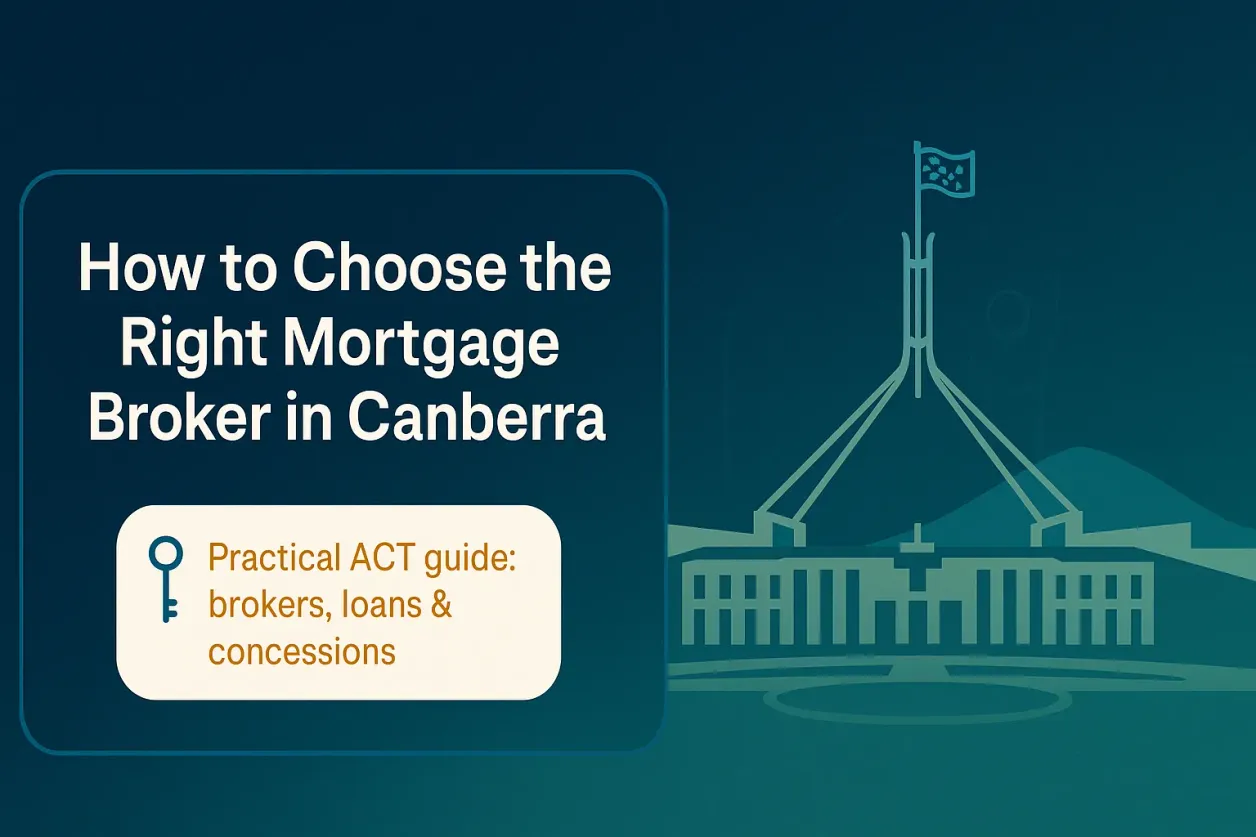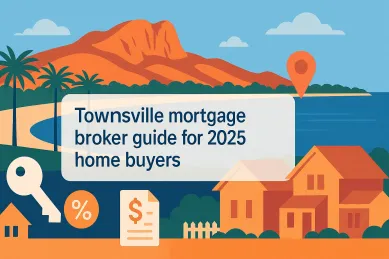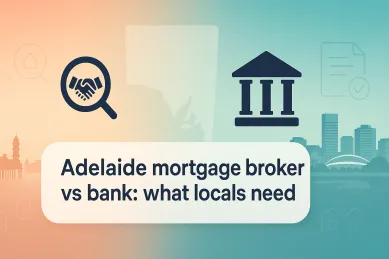Why the choice of broker matters in the ACT
Picking a broker is not only about the rate you see on a screen. It is about advice quality, structure, and your long term plan. Canberra buyers navigate a unique policy mix that includes federal guarantees, an evolving ACT duty system, and suburb level market differences. The right partner connects those dots, saves time, and helps you avoid costly missteps. If you are searching for mortgage broker canberra content that is practical and local, this guide is for you.
Understanding mortgage brokers
What a broker actually does for you
A good broker is your go-between with lenders. They map your goals, assess borrowing capacity, explain costs, and present shortlists that match your strategy. In Australia, brokers must act in your best interests when recommending a home loan. That legal duty sets an expectation for transparent comparisons, clear explanations of trade offs, and documentation that proves why a recommended loan fits your needs. Moneysmart provides detailed guidance on working with brokers.
A Canberra-specific selection checklist

Use the following checklist to compare options. Aim for clarity, not complexity.
- Licensing and duty of care: Confirm the broker is appropriately licensed and that they will explain how their best interests obligations apply to your scenario. Ask for that explanation in writing.
- Experience with ACT policies: Canberra loans often intersect with ACT duty concessions and local planning. Ask for examples of recent ACT approvals that are similar to yours.
- Panel breadth and depth: More lender options do not automatically mean better outcomes, but a diverse panel improves the odds that niche policies or pricing can be matched to your goals.
- Structure expertise: For upgraders and investors, correct use of offsets, split loans, and repayment types matters more than a small rate difference.
- Fee clarity: Many brokers are paid by the lender, not the client. Ask about any client-paid fees upfront, in plain terms.
- Turnaround management: Speed varies between lenders. The right broker will choose a path that balances price, policy fit, and timeframes.
- Communication style: Decide how you want updates delivered. Weekly summaries help you keep momentum without stress.
Buyer-specific guidance
First-home buyers: the 5 percent deposit pathway
If you are aiming to get in with a small deposit, a broker can help you explore federal guarantees that support eligible buyers with deposits as low as 5 percent. This is part of the Home Guarantee Scheme and is delivered through participating lenders. Your eligibility, property type, and price caps all matter. A broker will check these details early so you do not waste time on an ineligible application. Check the Housing Australia program details for current eligibility.
ACT stamp duty and concessions: what a local expert watches
ACT concessions can materially change your purchase cost. The Home Buyer Concession Scheme has thresholds and caps that are updated for each financial year. There are also duty exemptions for some off the plan purchases and properties in certain residential zones. A broker who works in Canberra will coordinate with your solicitor or conveyancer so the finance path aligns with the duty treatment on your chosen property. For 2025-26, the ACT confirmed updated thresholds for several concessions. Visit ACT Revenue for the latest details.
Snapshot table: ACT buyer assistance and concessions
| Pathway or concession | Minimum deposit typical | Duty impact summary | Who it can help | Key notes for your broker |
|---|---|---|---|---|
| First Home Guarantee (federal) | 5% | No LMI if eligible under scheme | First-home buyers who meet criteria | Check price caps, property type, and lender list early |
| ACT Home Buyer Concession Scheme | Varies by lender | Concession or no duty within thresholds set for the year | Eligible owner occupiers within ACT rules | Confirm dutiable value and current thresholds before exchange |
| Off the Plan duty exemption (ACT) | Varies by lender | No duty for eligible off the plan properties within caps | Buyers of eligible new units or townhouses | Confirm eligibility and caps for the specific project |
| RZ1 duty exemption (ACT) | Varies | No duty for eligible RZ1 properties within caps | Buyers of eligible detached housing under RZ1 | Broker should verify zoning and caps with your conveyancer |
| Pensioner or disability concessions | Varies | Concessions within defined caps | Eligible downsizers and buyers with qualifying status | Provide evidence early to avoid settlement delays |
Your broker should build these settings into your scenario so your approval pathway matches the timing of duty assessments and contract conditions.
Key Takeaway
Duty settings change by year and by property type. Confirm the current thresholds and caps before signing. Your finance plan must match the contract dates.
Capacity, buffers, and why your borrowing power can differ
Two Canberra buyers with the same income can receive very different borrowing outcomes. Lender calculators apply shading to income, scale living costs, and stress test repayments at a higher rate than today. Australia’s prudential regulator currently expects lenders to add a 3 percentage point buffer above the actual rate when testing serviceability. Your broker should run multiple lenders to see how that buffer interacts with your real budget.
Interest rates move with the Reserve Bank’s cash rate target and market funding costs. The cash rate target is set by the RBA’s Monetary Policy Board and influences variable rates across the system. Expect your broker to explain how fixed and variable pricing is shaped by the cash rate environment and by each lender’s funding.
A simple blueprint for refinancing in Canberra
Refinancing works best when you treat it like a project with clear stages.
- Define the goal: Lower repayments, faster payoff, debt consolidation, equity release, or all of the above.
- Audit the current loan: Rate, revert clauses, fees, offset balance, and redraw settings.
- Check capacity at today’s assessment rate: Your current lender may still suit you, but do not assume it is the best fit.
- Compare real packages: Rate is one line. Also compare cashback conditions, annual fees, offset access, and break costs for fixed loans.
- Time the switch: Coordinate discharge, valuation, and settlement so you are not left with a gap.
- Post-settlement plan: Keep repayments at the old level if cash flow allows. That reduces the principal faster.
Investment loans: structure and tax awareness

Canberra investors face the same national rules on interest deductibility as everyone else. Interest on a loan used to produce rental income is generally deductible, but the principal is not. If you mix personal and investment spending in the same loan account, the deductible portion can be affected. A broker and your tax adviser should align loan structure with the use of funds to keep records clean.
Structure choices to discuss with your broker
- Interest only vs principal and interest: Interest only can boost cash flow in the early years. Principal and interest reduces debt faster.
- Offset accounts and splits: Use separate splits for different purposes so the audit trail is clear.
- Cross-collateralisation: Simpler on paper, less flexible if you sell one asset. Independent securities are often easier to manage.
- Debt recycling with advice: Only pursue with a licensed financial adviser who can show the risks and record keeping steps.
Key Takeaway
Map each loan split to a single purpose and keep statements tidy. That protects deductibility and simplifies future changes.
Location-specific considerations
First-home buyer or investor in Gungahlin
Gungahlin is popular for newer stock, townhouses, and apartments that suit first-home buyers and investors. When comparing projects, ask your broker for examples of lender policies that apply to new builds and smaller floor areas. For investors, clarify market rent assumptions and vacancy buffers used by each lender so your capacity estimate is not overstated.
Are weekend appointments a thing in Canberra
Many brokers offer flexible meeting times, including evenings or weekends by prior arrangement. If you need a Saturday slot, ask up front and book early. Digital processing is now common, so a mix of video calls, secure uploads, and e-signing can get your file to unconditional approval without a midweek office visit.
Want face to face near Parliament House
If you prefer to meet near Parliament House, filter for brokers based in the CBD or Barton. Proximity is nice for signing and quick drop ins, but do not trade away the right structure or a stronger approval path just to be closer to an office. Ask each broker for two Canberra case studies that match your profile and property type.
Practical preparation steps
The document checklist your broker will request
Have these ready before you inspect property. It speeds up pre-approval and helps you negotiate with confidence.
- Photo ID for all applicants
- Last 3 months of bank statements for income and spending
- Recent payslips or tax returns and NOA for the self employed
- Statements for all loans and credit cards
- Evidence of savings and deposit
- Contract of sale and any special conditions once you find a property
- Estimates of strata, rates, and insurance for the target property
- A summary of your short term and long term goals
How to compare rates the smart way
A low advertised rate can come with trade offs. Ask for a comparison that lists rate, fees, revert rate after any intro period, offset access, and estimated monthly cost at your real loan size. Include at least two alternatives. For Canberra buyers, make sure the plan accounts for ACT duty timing, valuation timing, and any scheme or concession deadlines that could affect settlement.
Key Takeaway
Don’t choose based on rate alone. Consider fees, features, and settlement timing when comparing loan options.
10 questions to ask every short-listed broker
- How do you apply your best interests duty to my scenario and how will you document it
- Which lenders do you expect to fit my goals and why
- What are the key approval risks in my file
- How many Canberra approvals like mine have you lodged in the last 6 months
- What turnaround times do you expect for the lenders on your shortlist
- What total cost will I pay over the first 3 years including fees
- How will you support me after settlement
- Will you advise me when a lower rate becomes available with my current lender
- Can you provide a written capacity range and a plan if rates shift
- What is the best way to reach you for urgent issues
Action plans by buyer type
Putting it all together for first-home buyers
Combine policy awareness with a simple action plan.
- Confirm eligibility for small deposit paths with your broker and check price caps.
- Cross check your ACT duty position with your conveyancer before you sign.
- Set a realistic price range that includes a serviceability buffer and extra costs like inspections, moving, and insurance.
- Get a written pre-approval, then keep your spending steady until settlement.
This plan reduces nasty surprises and puts you in a stronger position when you find the right home.
Putting it all together for upgraders and refinancers
If you already own in Canberra, look at the whole picture. A refinance that lowers your rate but removes offset flexibility might cost more in the long run. If you are upgrading, timing is everything. Line up sale, purchase, and loan approvals so you are not caught between settlements. Ask your broker to model keep-versus-sell scenarios if you are considering turning your current home into an investment.
Putting it all together for investors
Structure trumps everything. Choose repayment types and splits that suit your income and risk tolerance. Keep records clean so tax time is simple and defensible. Use conservative rent and interest estimates, and model a scenario where rates are 2 to 3 percentage points higher than today’s. That is how lenders will test your loan anyway.
FAQ: Canberra buyers and owners ask these questions

Who is the best mortgage broker in Canberra for first home buyers There is no universal best. Choose proven ACT experience, a clear plan for the Home Guarantee Scheme if you plan a 5 percent deposit, and a pre-approval process that includes document checks and a capacity range. Ask for two recent first-home case studies in Canberra.
Can I get a low deposit home loan in Canberra Yes, if you meet eligibility rules for the federal guarantee and the property meets price caps. A broker can confirm lender participation and guide you through the process.
Which mortgage broker in Canberra has the lowest rates Rates change often and differ by profile. Use a broker who compares total cost, fees, and revert rates. The right structure can save more than a small rate cut.
How do I refinance my home in Canberra Define your goal, check current loan terms, run a capacity check, compare real packages, and plan settlement timing. Keep repayments at the old level if you can to get ahead on the principal.
Mortgage broker recommendations for Gungahlin ACT Prioritise brokers with recent approvals for new builds and townhouses. Ask how they handle valuations and floor area rules. Request Gungahlin examples to verify local experience.
What documents do I need for a mortgage in Canberra Have ID, bank statements, payslips or tax returns, existing loan statements, and deposit evidence ready. Add a contract of sale once you find the property.
Are there mortgage brokers open on weekends in Canberra Many offer weekend or evening appointments by request. Book in advance and confirm how document uploads and e-signing will work.
Canberra mortgage broker for investment properties Look for structure expertise. Ask about split loans, offsets, and how to keep deductibility clean. Check that the broker is comfortable coordinating with your tax adviser.
How to choose a mortgage broker in Canberra Use the checklist in this guide. Focus on best interests duty in practice, ACT policy knowledge, lender panel fit, and communication discipline.
Mortgage broker near Parliament House Canberra Filter for brokers in the CBD or Barton if you want face to face. Proximity is secondary to expertise and process quality.
Your next step
You now have a clear framework to pick the right partner, compare options, and move with confidence in the ACT. If you want award winning help from a local team that supports first-home buyers, investors, and refinancers, talk to MO’R MORTGAGE OPTIONS. They guide Canberra clients through first-home paths, refinancing reviews, and investor strategies, and they back it with service that keeps you informed at every step.



